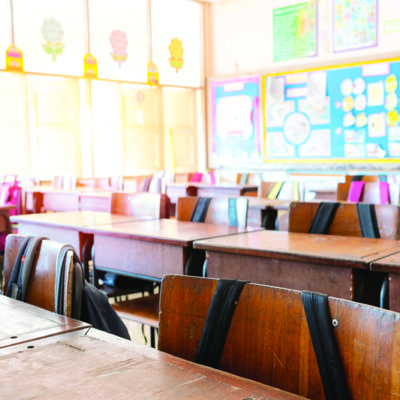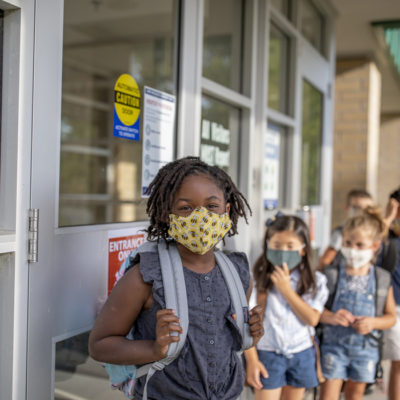This resource is provided by ACSA Partner4Purpose AALRR.
On February 28, 2022, the California Department of Public Health (“CDPH”) issued updated written guidance and Governor Gavin Newsom issued Executive Order N-5-22 . These publications remove the statewide mask mandate for K-12 schools, while allowing “local health jurisdictions and entities [to] continue to implement additional requirements that go beyond this statewide guidance based on local circumstances.”
The new rules specify as follows:
Indoor School Settings
The new CDPH guidelines state: “After March 11, 2022, the universal masking requirement for K-12 and Childcare settings will terminate. CDPH strongly recommends that individuals in these settings continue to mask in indoor settings when the universal masking requirement lifts.”
Thus, effective March 12, masks are “strongly recommended” but no longer required in indoor K-12 and child care settings, subject to any “additional requirements” implemented by local health jurisdictions and entities. Additionally, individual circumstances and situations may require masking as unique accommodations for students or staff when there are high risks for transmission or exposure. If these factors may be a consideration in your school, contact your current AALRR legal advisor for more information.
School Buses
With regard to school buses, the Governor’s office clarified:
- School buses serving K-12 student populations are considered “a school setting” and accordingly, masking remains required through March 11, 2022, after which time masking will no longer be required but will be strongly recommended.
- After March 11, 2022, California guidance will align with the Center for Disease Control guidance, which does not require masks on buses or vans operated by public or private school systems.
- However, (1) state requirements and recommendations are subject to change; (2) local health jurisdictions and entities may impose additional requirements beyond state and federal requirements; and (3) when practicable and safe, CDPH recommends optimizing air quality on school buses by opening windows to create more ventilation.
Board Meetings and Public Events
Updated CDPH guidance confirms that: “Effective March 1, 2022, the requirement that unvaccinated individuals mask in indoor public settings will move to a strong recommendation that all persons, regardless of vaccine status, continue indoor masking.”
Thus, during the period from March 1 through March 11, 2022, individuals may attend Board Meetings and other events held on District property but not on K-12 campuses, without wearing masks. If events are held indoors on K-12 campuses, then masks must be worn up through and including March 11, 2022. However, even after March 11, 2022, masks continued to be strongly recommended.
School Personnel
Executive Order N-5-22, dated February 28, 2022, suspended Title 8 of the California Code of Regulations section 3205(c)(6)(A), which is the Cal/OSHA mask mandate for unvaccinated employees. This suspension was effective immediately. Previously, unvaccinated employees in a K-12 setting were required to wear masks even when students were not present, and now this requirement has been lifted. Rules related to providing proof of vaccination or engaging in regular testing remain in place.
Final Considerations
From now through 11:59 p.m. on March 11, 2022, CDPH guidelines continue to require that districts must continue to enforcement mask mandates indoors when students are present on campus. After this date, masks will be “strongly recommended,” but not required, subject to guidance from local health jurisdictions and entities. Clients with questions regarding the viability of local mask requirements (including accommodations) should contact their AALRR attorney.
This AALRR publication is intended for informational purposes only and should not be relied upon in reaching a conclusion in a particular area of law. Applicability of the legal principles discussed may differ substantially in individual situations. Receipt of this or any other AALRR presentation does not create an attorney-client relationship. The Firm is not responsible for inadvertent errors that may occur in the publishing process.









Leave a Comment